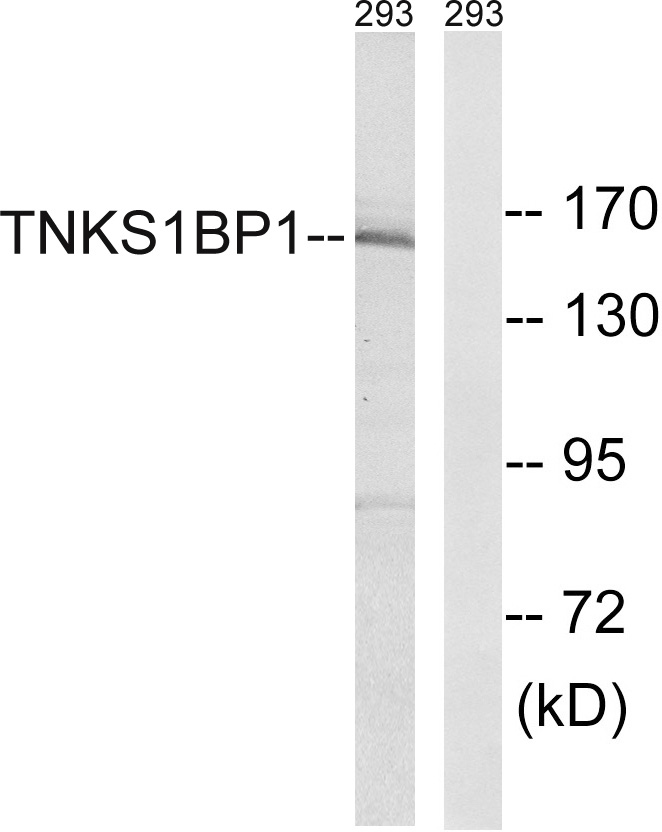TAB182 Polyclonal Antibody
- 货号:YT4520
- 应用:WB;ELISA
- 种属:Human;Mouse
- 蛋白名称:
- 182 kDa tankyrase-1-binding protein
- 免疫原:
- The antiserum was produced against synthesized peptide derived from human TNKS1BP1. AA range:1601-1650
- 特异性:
- TAB182 Polyclonal Antibody detects endogenous levels of TAB182 protein.
- 组成:
- Liquid in PBS containing 50% glycerol, 0.5% BSA and 0.02% sodium azide.
- 来源:
- Polyclonal, Rabbit,IgG
- 稀释:
- WB 1:500 - 1:2000. ELISA: 1:40000. Not yet tested in other applications.
- 纯化工艺:
- The antibody was affinity-purified from rabbit antiserum by affinity-chromatography using epitope-specific immunogen.
- 储存:
- -15°C to -25°C/1 year(Do not lower than -25°C)
- 其他名称:
- TNKS1BP1;KIAA1741;TAB182;182 kDa tankyrase-1-binding protein
- 背景:
- PTM:ADP-ribosylated by TNKS1 (in vitro).,PTM:Phosphorylated upon DNA damage, probably by ATM or ATR.,subcellular location:Colocalizes with chromosomes during mitosis, and in the cytoplasm with cortical actin.,subunit:Binds to the ANK repeat domain of TNKS1 and TNKS2.,tissue specificity:Detected in testis, ovary, lung, skeletal muscle, heart, prostate and pancreas, and at very low levels in brain and peripheral blood leukocytes.,
- 功能:
- PTM:ADP-ribosylated by TNKS1 (in vitro).,PTM:Phosphorylated upon DNA damage, probably by ATM or ATR.,subcellular location:Colocalizes with chromosomes during mitosis, and in the cytoplasm with cortical actin.,subunit:Binds to the ANK repeat domain of TNKS1 and TNKS2.,tissue specificity:Detected in testis, ovary, lung, skeletal muscle, heart, prostate and pancreas, and at very low levels in brain and peripheral blood leukocytes.,
- 细胞定位:
- Nucleus. Cytoplasm, cytoskeleton. Chromosome. Colocalizes with chromosomes during mitosis, and in the cytoplasm with cortical actin.
- 组织表达:
- Detected in testis, ovary, lung, skeletal muscle, heart, prostate and pancreas, and at very low levels in brain and peripheral blood leukocytes.

- Western Blot analysis of various cells using TAB182 Polyclonal Antibody diluted at 1:1000

- Western blot analysis of lysates from 293 cells, using TNKS1BP1 Antibody. The lane on the right is blocked with the synthesized peptide.





